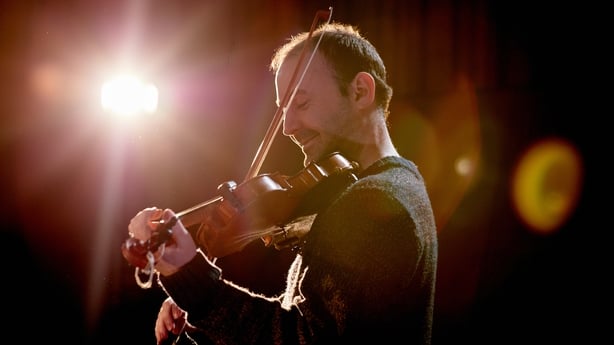The tunes 'Yes! We Have No Bananas' or ‘Colonel Bogey’ or ‘Oh! Listen To The Band’ may not immediately sound like tunes you might hear in a traditional music session.
But between the years 1916 and 1945, as the landscape of music changed rapidly in Ireland, traditional musicians incorporated and adapted tunes like these into their repertoires, moulding them to fit their own unique styles and individual approaches.
Dr. Conor Caldwell is a fiddle player and a lecturer in Music in the Irish World Academy of Music and Dance in the University of Limerick and in this week’s Rolling Wave podcast he talks about the connections and relationships between music that falls under the general heading of jazz and traditional music and how his interest in this topic came from his perspective as a fiddle player.

Conor says: "My interest in any research project ultimately comes from my interest in playing the fiddle. When I hear something unusual, whether that’s in-person from a performer or at a session, or something I come across in the archive, I’m immediately drawn to the idea of wanting to play it. Sometimes that in turn leads me to ask where the tune came from and if it has an interesting story. Often the answers are fairly mundane, but the spark for me in this project was listening to a recording of John Doherty talking about the song ‘Yes! We have no bananas’ in the final section of the documentary Fiddler on the Road. I had always been aware that many of the tunes I grew up playing within the musical community of Donegal were different in their form and style, but I had never properly interrogated their origins.
After a while I was able to identify a significant selection of tunes which came directly from recordings of brass bands or from ‘jazz’ 78s and then I started to look into the way that traditional music interacted with jazz culture in the early twentieth century."
You can listen to Conor Caldwell talking about these tunes and about what he found out in the course of his research on the latest episode of The Rolling Wave podcast above.
Listen to more from The Rolling Wave here.

